It’s always challenging running a business, and one of those challenges is balance. Balancing planet Vs profit is a massive challenge!
Whether you’re a leader in sustainability or you’re a person just trying to do your bit and take small steps to look after this rock we call home, we hope you’ll learn from our business journey in today’s episode.

Pat 00:00
Hi, Pat, the podcast is here. Global warming is a real-world issue. We see knock-on effects every single day and we all have to look after this big floating rock we call Earth. In today’s episode, Dan and Lloyd talk about profit versus planet and some of the steps they’re taking to reduce Knowltons impact on the planet.
Lloyd 00:19
Carbon offsetting that we do a lot with the tree planting and the other projects that we fund through Ecology, shout out to Ecology, for every employee in our business, we have set an average human in the UK, their carbon footprint to do that.
Pat 00:34
Dan predicts what the new green future might look like for businesses.
Dan 00:39
Businesses and brands are going to have to put their specific carbon footprint of all of their services, of all their products, on their websites and on anything that’s showing what they can offer to the world.
Pat 00:50
So, whether you’re a zero plastic eco-warrior, or you’re just looking for ways to do your bit for the planet, make sure you have your notepads at the ready. This is episode 103 of the business anchors podcast. Welcome to the bases, anchors podcast.
Dan 01:14
So Lloyd, what do you think is more important in business? Profit? Or the planet?
Lloyd 01:21
What do you think Dan? Are you really asking me that question?
Dan 01:25
Yes, I’m asking you that question.
Lloyd 01:27
Okay. The Planet. Okay, cool see you next week.
Dan 01:33
I think this is gonna be an interesting episode because we’ve recently been focusing on our positive impact plan. Which is all around this kind of topic. I want us to dive into a bit of that today.
Lloyd 01:47
Yes, definitely. I think also, it’s quite a relevant topic where you’ve got these big oil and gas companies making millions and billions in profits and destroying the planet. It sounds quite topical but, we’re kind of talking about it from our angle of a relatively small business, like a business with 10 to 20 employees and what we can do. That kind of thing and what we’re planning to do and
Dan 02:12
What I thought when I was thinking when answering that question, what’s more, important profit or the planet? My obvious answer was, obviously, the planet. But, then I thought, well, to be able to impact the planet positively, you need to make a profit to have the funds to support the resource to then help the planet. Then I thought, well if you just didn’t have a business at all that had an impact, is that not better than having a business that you then have to do other stuff for to have a better impact on the planet? it’s got me in like a bit of a weird circle.
Lloyd 02:45
I think that is the reality, there are a lot of businesses out there that have an overall and quite an obvious overall negative effect on everyone except the shareholders making money. Say you’re a small business, that is setting fire to plastic. That’s your business, right? A guy called Brian who someone goes, I got plastic I need to get rid of and he goes, give me 30 quid, I’ll burn it. If you’re Brian doing that, then you might be like, Well, I don’t have the money to offset my carbon footprint, I only make 30 quid for this pile of plastic and then the answer would be, don’t have that business. Yeah, it is an interesting topic. I understand what you’re saying, a business has to make enough money if they want to have a positive impact because otherwise, you can’t afford someone’s wages to be able to have that positive impact.
Dan 03:48
But, then you start to get into the question of what’s more important? So, we’re a business that is having some form of negative impact on the planet because of what we’re doing that we’re trying to fix but, we’re having a positive impact (hopefully) on our team, supporting their livelihoods, supporting them to be able to afford to buy food, shelter and all that kind of stuff. We could just completely shut our business down and cancel all the negative impact we’re having, but then that would negatively impact our team. What’s more important, our team or the planet? The local community or the planet?
Lloyd 04:25
In our positive impact plan, our overarching thing is that Knowlton will not have a negative impact and have a more positive impact every day. So, that’s quite broad. We’re saying, we don’t want to have a negative impact on the planet, but we also don’t want to have a negative impact on our neighbors like next door to our studio. We don’t want to have a negative impact on our employees and our local community. We’re not saying “right guys, we’re spending all the money and planting trees so you’ve all got to have a pay cut”. Doing that side of things would mean, hang on is this counterproductive? we’re not going to have a team of people that can have a positive impact on the world and our local community. Our plan focuses on our local community, our people, our people’s families, the planet, the world and people we will never meet.
Dan 05:34
I’ve got a question for you. This might be a difficult one. Why has it taken us almost seven years to think about how we can have a more positive impact on trying to grow our business?
Lloyd 05:48
First question, it hasn’t. In 2018, we moved into the place that we’re in now. Upstairs, we’ve got all our offices, and we’ve got our studio down here and different rooms. We got some government funding, low case funding, I believe?
Dan 06:09
Up-cycled desks?
Lloyd 06:11
Yeah, all of our furniture was upcycled, rather than buying new stuff. We put, what’s it called? insulate, insulation, foam insulation, we paid a lot more than we needed to for insulation to try and make sure that we weren’t just heating the outside world and all that sort of thing. I would say that we’re taking much bigger steps now.
Dan 06:34
I’m playing devil’s advocate, by the way!
Lloyd 06:38
I’d say for about 2018, we’ve been taking steps towards it, which is why I’m really happy. Now. We’re doing bigger things and things that I feel we can talk about to the world, hopefully, inspire other businesses, and learn from things we’re still doing wrong. I suppose we have been for a while. Before 2018? Dan, if I’m honest, I think me and you were just trying to work out how to run a business. I suppose the world’s changing now. So, maybe if someone started a business in 2022, that might also be something they’re thinking about alongside “Okay so, starting up this business, what’s my business plan?”. For us, it’s certainly. In 2016 Dan, we didn’t have one conversation about how is this going to have a positive impact on people outside of ourselves did we? if we are honest.
Dan 07:25
You were wearing a suit as well.
Lloyd 07:26
I was to try and impress people. I didn’t know anything.
Dan 07:31
It has been like an exponential curve, hasn’t it since 2018. I started to think about having a bit more of a sustainable mindset of suppliers and things that were fitting the office out with and now we’ve mapped out this positive impact plan that’s focused on all of the areas that we can have a positive impact on.
Lloyd 07:49
Exactly, we have a positive impact crew who are now going to be meeting regularly. We’re like, right, what have we done? How has it had a positive effect on and who was it had a positive effect on? What are we going to do in the future to keep these new actions? Because it’s got to be a constant improvement. I spoke to a friend of mine recently, who is setting up a whole business around this kind of thing, doing things in a more eco-friendly way for businesses and consumers. I was sort of saying to him, like, oh, wait, what has been a real struggle? I don’t want to tell the world what we’re doing and then go, we’re not doing this. Then we look really bad. We were both saying that what’s important is being honest, like, we are not perfect without a doubt. If I’m honest, no one ever is in anything they do. As long as our intentions are in the right place and we’re taking action every day, every week, every month to try and improve what we’re doing and have a more and more positive impact, then I’m happy for us to learn along that journey, get comments like, Oh, you guys are trying to do this? I did notice that Brian was burning plastic in the background of your video. How about you ask him to stop? And then next week, we were like “Hey, Brian property, pack it in now mate?”
Dan 09:02
Something that changed the way I think about this was going to the Agency Nomics event last year, where they were saying “just offsetting your carbon isn’t enough”. That’s trying to put a plaster over a problem that you’ve caused by not doing other things like looking for more sustainable ways of working. I think we do offset carbon, but we’re also really focusing on choosing more sustainable suppliers and changing the way we work.
Lloyd 09:33
The carbon offsetting that we do with the tree planting and the other projects that we fund through Ecologi, shout out to Ecologi, spelt with an ‘i’ at the end. That’s our last resort. We’re trying to reduce our carbon footprint and have no negative effects, and have a much more positive effect with everything we do. But, while we’re on that journey, as a last resort, for example, we all believe, almost all of our employee, almost all of our employees, not everyone sorry, drives a petrol or diesel car rather than an electric car here, like we’re not in a position where we can fund our employee’s electric vehicles to get to work at the moment. It’s not viable for us to make that change or support our employees making that change. We will offset that carbon for now and for every employee in our business, we have set an average human in the UK, their carbon footprint to do that. So it’s that last resort. I hope as we get further and further with our plan and do better and bigger things, learn as much as we can. Our actual carbon footprint is decreasing. Then we just have an even bigger positive impact with offsetting. I do think this is a really important point there, Dan, I’m gonna steal. Sorry, I’m still talking.
Dan 10:06
Please do.
Lloyd 10:14
You said something like “oh, it’s not enough just to offset carbon” and I want to say, I think that’s quite negative. I don’t think it’s always useful for people to say that. Some people like ‘no, that’s not good enough and it stops people from doing anything. I would say, if you’re doing nothing, anything is better than nothing. So don’t stop taking positive action because you’re worried people aren’t. People are gonna say you’re not perfect. So don’t offset your carbon footprint If you think people are going to come to you and say ‘well, you’re using plastic?’ it’s better to do something than do nothing. Then you can have a journey to improve all the other bits.
Dan 11:45
Can I be the devil’s advocate again? It just sounds like you’re greenwashing to try and make our agency look good to the outside world? And really, we’re just burning plastic here secretly.
Lloyd 11:55
We don’t talk about Brian. No, I think greenwashing it’s a really interesting topic and something that we need to talk about. A lot of these big corporations, there’s no doubt they’re greenwashing.
Dan 12:08
What is ‘Greenwashing?’
Lloyd 12:08
Saying that you’re doing things for the environment or doing things in an eco-friendly way just to make more money, you’re not really. If the turnover of your company is 10 billion, you could say we funded 100,000 pounds of green stuff going on, we’re so good. People look at and go, Wow, 100 grand, oh, that they’re taking that seriously when you look at their 8 billion pounds worth of turnover, what they’re doing to the planet, they’re having a far bigger negative impact on the planet, that 100. We can’t afford to do 100,000 pounds of positive stuff for the planet. Our overall impact is far more positive than Nestle’s or Unilever, another company, anyone.
Dan 12:54
We had a discussion about this yesterday on the whole greenwashing thing. Something that makes us feel very comfortable that our intent is in the right place. You and I both know that we genuinely want to have the biggest positive impact on our team, the wider environment and the planet. We’re not just doing this to try and look cool or good. We are making decisions in the business that are worse for us in terms of financially and short term because we know that in the long term, we want to be, personally, I want us to have a legacy at the end of this where we don’t look back and think ‘Oh, we made loads of money but, we had a terrible impact on the environment and didn’t give a shit about our employees or the local community.
Lloyd 13:46
I would say, more than intent, I think for you not to be greenwashing. You need intent. If we just were thinking ‘we want to have a good impact’ and we’re not actually taking action, then that’s not good enough because you can’t just go ‘but I wanted to’. So, I think intent and action because a lot of these big corporations don’t have the intent, but they are taking some action. Like no, we’re doing this thing. But I think you need to both to really make sure you are having a positive impact and not greenwashing. I know that some of our actions along our business journey will make mistakes or we’ll do something that we think is having a positive impact and then we realise afterwards, it doesn’t. That’s where, I think, as long as your intent is in the right place. I don’t feel bad about that. We are learning just like everyone, just like all the individuals about what we’re doing to our planet, not just businesses. I think as long as your intentions are in the right place, and you’re learning from those actions, even if not every step in the right direction. Then I’m happy.
Dan 14:51
As the person who’s sort of heading up our positive impact plan and positive impact ongoing project. I think it could be quite interesting to anchors who are listening thinking ‘Oh, that sounds interesting. I want to try and do something to ensure we have more of a positive impact and less of a negative impact on the planet and the wider community. From someone who’s, you know, been implementing this? What steps could they take, you know, even an initial small way to start ensuring that?
Lloyd 15:22
Well, I think what we did to kick this off, when I say this, a lot of this action was driven by me initially. Then I thought, actually, there’s not going to be enough impact if it’s just me. Having a conversation with all of your employees, and team and saying, right, this is now something we want to do in the business, we want to have a positive impact on the world. We want to be climate positive, and carbon neutral, whatever you’re aiming for, and setting up regular meetings to actually make action happen. That’s something that I think is driving change for us that we all sat down, discussed our ideas, and then said, Okay, these might work soon. Let’s start doing this.
Dan 16:03
We have a Slack channel, Positive Impact Crew.
Lloyd 16:08
Yeah. I know Dan earlier said ”oh, you can’t just offset” you can’t, but I absolutely love Ecologi, E C O L I G I. We have a link that you can sign up with and they’ll plant more trees and stuff. So we can put that somewhere, or you can ask us for it. The first step that you can do in the next five minutes, you can go on there, put your number of employees and sign up for a monthly payment to fund carbon offsetting projects. A lot of other stuff might take you time to implement. That’s something you can do right now, which is why I think it is a good thing to start with potentially. Then the things that take longer, you can gradually improve while you’re offsetting the carbon that the negative impacts you’re currently having. Another thing that really helped us back in 2018, is there is a lot for businesses, there’s funding out there for green initiatives and doing things in the right way. So, I would just Google ‘funding in my local area’. We used low case funding, which I believe is only in the south and east of the country. I believe in something to the EU, so might not be a thing anymore, thanks, Brexit. There’s funding available. If you’re saying, right, I’m going to spend 20 grand on insulating this building so that we’re not having a negative impact in that way, you might be able to get 5000 pounds of it funded by local government or one of these initiatives. I would say look into that if you’re thinking of investing, it might be a smaller business, and you’re going to spend 300 pounds, but you might be able to get funding for 150. So look into that sort of thing. Definitely. I would say, I know this is really simple but, if you just search for hashtags or content on a social media platform you use, there are groups on LinkedIn and there are hashtags on Tik Tok that I just follow now, and other businesses doing similar stuff to you. They’re just posting content that is really good inspiration. I saw that someone was composting their coffee grounds and stuff. And I just thought like, well, you can definitely do that. So that’s something we’re actually talking about next week working out a process of how we can do that. So just look for content on the social media platforms you use in this area. There’s so much good stuff that can inspire you.
Dan 18:36
I also think away from the ‘doing this because it’s the right thing to do’ if you need more convincing, I honestly believe that moving forward and the track record of how things are moving forward already is showing this, consumers are becoming more aware of the impact that brands are having on the planet. It is really impacting their decision based on how much of a positive or negative impact you have on the environment, especially younger people now. Commercially, it’s actually also on top of doing the right thing, I think it is going to be in business’s interest in the future to focus more on this.
Lloyd 19:18
That’s interesting. That’s something that we’re on the waiting list for at the moment. A new thing called Ecologi zero. Ecologi, as I said, who we’re using to help us offset our carbon footprint, have now got something that links in with your financial software (zero in our case) and all of our suppliers everywhere you’re buying things from, all the companies that you interact with that you pay or all your clients or customers that pay you. Again, I don’t have this yet as we are on the waiting list and I think they’re just introducing new customers slowly. It’s going to come up saying like ‘Oh, this supplier is really bad for the planet’ and it might be we’re spending eight and a half 1000 a year with this company, but we can see they’re having this really bad impact with the way they’re doing things. I think from what I’ve read, they’re naturally going to suggest alternatives that are doing much better stuff and having a more positive impact. So I think, again, like Dan was saying, do it for the right reasons and intentions of doing the right thing. I think in the next decade or two, there’s going to be huge opportunities for businesses that are doing things in the right way and do actually care and have spent the months and years to make sure they’re not having a negative impact on the planet or their community.
Dan 20:41
Can I make a prediction, I reckon in the next five to 10 years, you know how recently at restaurants, you have to legally show the number of calories in your meals, I reckon with suppliers and companies, on your products, they’re going to have to show the impact on the planet. We went to Nando’s yesterday and it was really interesting to have that insight into how many calories things have really changed your decision on what you’re choosing. I think visibility is going to be key in the future. I think a lot of people are making decisions, they just don’t have a clue what impact it’s having on the planet. Whereas if they actually knew and it was very visible and clear and legally, they had to show that, it would change their decision.
Lloyd 21:26
Ecologi zero is the first time that I saw that this is coming basically. There’s going to be something that’s going to say, you’ve spent this much in your business with this supplier, and they are bad or good for the planet and here’s the better alternative. It’s happening. I think businesses if you’re secretly having a really negative impact on the planet with the stuff you’re doing, I think you know, karmas going to come and get you in the next few years, I would say it’s going to become much more obvious. Already we’re seeing some of our clients have these green goals and things that they need to do. Why would you not want to be a business that can help them achieve that, you know, for your selfish reasons, as well as the reasons we’ve been saying about and why you should be doing it anyway. It just makes sense. I think if you don’t start taking action soon, you’re going to suffer for it. That wasn’t a threat, by the way. I will find you and I will kill you.
Dan 22:24
Do you have anything else Lloyd that could be interesting to companies or people listening who are looking to have more of a positive or less of a negative impact on the wider environment?
Lloyd 22:35
I would just say make taking action on this the norm. If we made the decision now to go right, we’re offsetting all of our carbon, it would have looked like this huge cost and we’re like ‘how can we find that within the business’ but because we started it when we were smaller and we’ve just increased it every time we’ve added an employee. It’s just become the norm. I think making it the norm doesn’t make it feel hard. So take action, make it the norm and all the next steps are much easier and more natural to get into. Also, the thing I said to you Dan, perfection is the enemy of progress. So don’t let someone on the internet or your friend or family or colleague say you’re not doing this right? Stop you doing anything. Take action now to improve where you are with the impact you’re having on the planet and know that it’s a journey, and it’s going to be step by step. I think in life, this is too much of a thing of perfection, stopping progress, like ‘Oh, I’m not gonna go to the gym because I ate three doughnuts yesterday. So what’s the point?’ is exactly the thing of like ‘Oh, I’m not gonna offset my carbon because I threw away that plastic fork yesterday’ it makes absolutely no sense and it’s illogical. Don’t let perfection be the enemy of progress.
Dan 23:59
One final thing I think that I’ve found in the business is now that we’re talking a lot more about making more sustainable decisions as a business, everyone in the team is thinking about it more and coming up with more suggestions. Every week, we’re having these kinds of discussions. Just making sure you’re actually talking about this stuff can enable your team and people, other people, and your colleagues to share their ideas and help with that as well.
Lloyd 24:27
Business anchors listeners. If you have any suggestions or anything you do within your business or that you’ve seen that you haven’t seen us talking about that you think could help us on our journey as well. Please let us know because like I said, I think now we’re talking about it more hopefully, we’re going to have more people kind of supporting us in letting us know things that we could improve on, so come at me.
Dan 24:51
Also, just as a final shout-out and thank you to Adobe express who are our sponsors for this podcast. We always put a link in the description for you to try their tool out. It’s an amazing tool to create all of your different social assets for social media and online. It’s a really great so we’ve been using their products for years in our agency and it’s worth giving it a go. So thanks to Adobe Express for sponsoring the pod.
Lloyd 25:14
Thank you everyone for listening to our green ramblings.
Dan 25:18
See you in your ears next week.
Lloyd 25:19
See you in your ears next week.
Hopefully, you’ve learnt a lot this week. If you have any more questions, then why not start a conversation with us here at Knowlton.























We've always wondered if anyone actually looks at the footer on websites. We don't think many people do. So if you're reading this... You're special.
Knowlton HQ, Unit 62 Maple Leaf, Manston Business Park, Ramsgate, Kent CT12 5GD
© 2024 Knowlton | UK. All Rights Reserved.